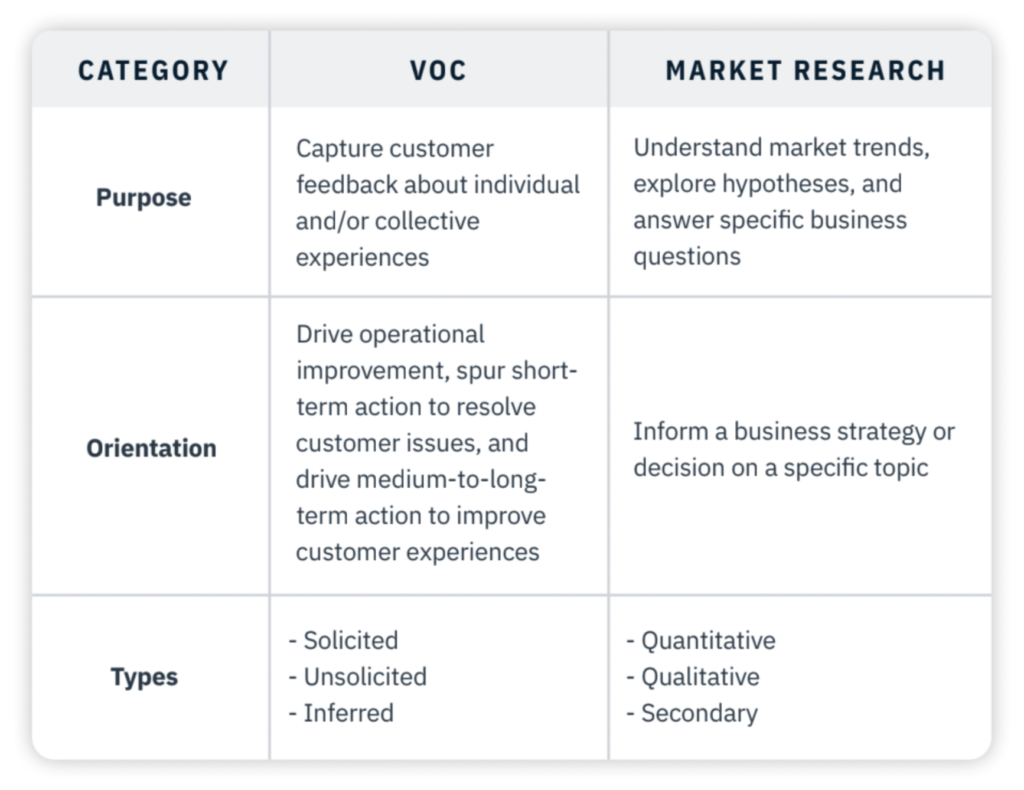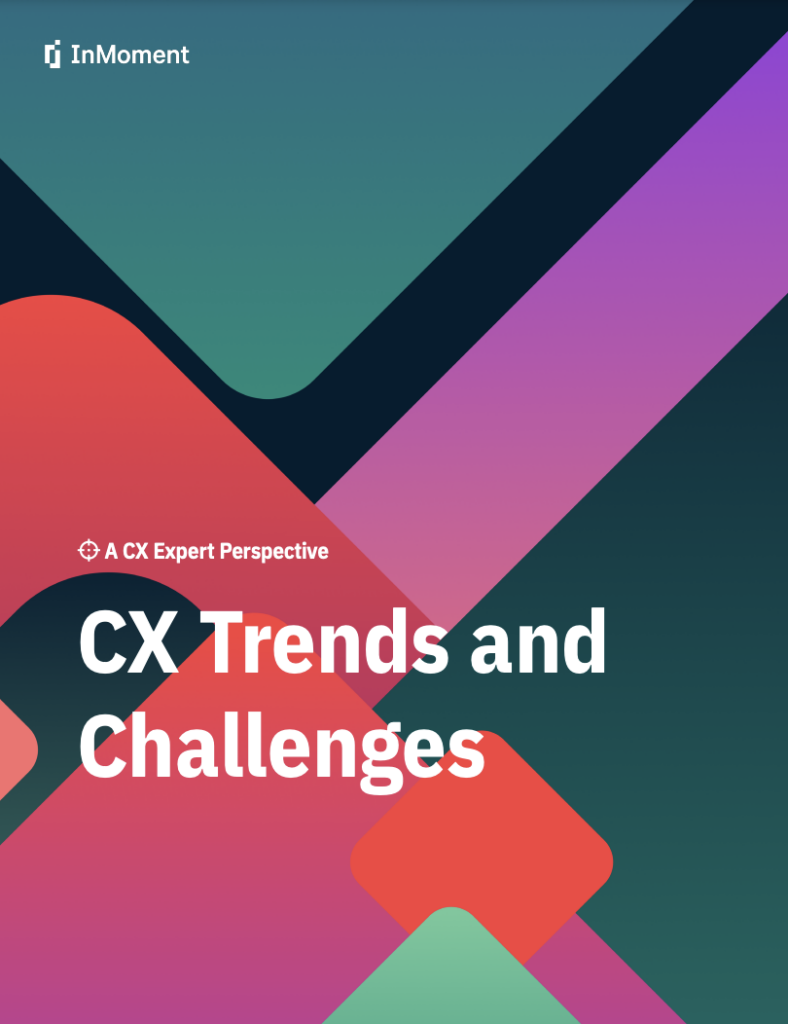What Is the Difference Between Voice of Customer and Market Research?

A lot of folks believe that voice of customer (VoC) programs and market research mean the same thing—but they’re actually quite different! In fact, each discipline differs in purpose, design, analysis and outcomes.
However, even though they’re different, it’s important to point out that one isn’t necessarily better than the other—and brands need both if they want their customer experience (CX) programs to reach their potential.
So, with that in mind, let’s get into a quick primer!
Breaking Down the Difference Between Voice of Customer & Market Research
What Is the Definition of Voice of Customer (VoC)?
Voice of the Customer (VoC) is the process of gathering vital information regarding what customers think and feel about their experiences with a business.
How Does VoC Fit into Your CX Strategy
VoC programs are an essential part of any CX toolkit. They’re designed to fulfill many critical functions for your overall customer experience program, including, as their name implies, understanding customer needs. They’re also useful for understanding customer expectations, as well as what those individuals may want from you before even they know. This information can then be used to adjust operations, inform marketing efforts, and help your organization create both short- and long-term Experience Improvement (XI).
Not all VoC feedback comes from typical listening methods like surveys and focus groups, either. A lot of it comes from unsolicited feedback (website reviews, social media comments, etc). Unsolicited feedback is helpful because it gives customers a chance to express themselves entirely in their own terms, which may alert brands to problems and journey breakages that they weren’t aware of.
All of this boils down to the ability to not just capture individual and collective customer feedback, but act upon it. Taking action is crucial to Experience Improvement and building connective relationships.
What Is the Definition of Market Research?
Market research explores hidden relationships within industry data, collected by a market research firm, in order to predict and forecast future events and behavior within the market.
What Is the Role of Market Research in Your Business?
While Voice of Customer is all about feedback, market research takes a slightly wider lens by focusing on understanding the trends around your business.
Primary research is useful for testing new communications and services that your company wants to put out there, while secondary research looks at the dynamics and sizing of the marketplace around you. Conducting these types of research can help your company identify your target market, segment your customers, and identify growth opportunities.
Your company can supercharge its market research efforts by defining the population you want to target with a survey, then creating samples that ensure you’ll have a match. We’ve found that surveys like these are most effective when they’re blind, meaning that the customer or individual stays anonymous while taking them, and challenge you to do the same! This method is great for reducing response bias.

So, Why Do You Need Both?
VoC and market research aren’t the same, but your CX program and your organization need both in order to truly understand your customers as people. That fundamental, holistic understanding fuels unforgettable experiences that build loyalty while also creating additional revenue! So be bold in your strategy and use both VoC and market research. Your customers will feel heard, your C-suite will be impressed, and the experiences you provide will be meaningfully transformed.
Click here to read our full-length white paper on why your brand needs both VoC and market research. Our very own Eric Smuda has spent decades in both fields and provides an in-depth look not just at why these disciplines are important, but how your organization can wield them effectively.






